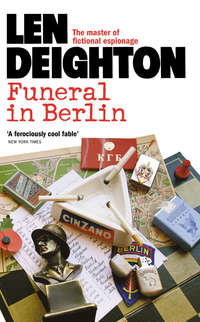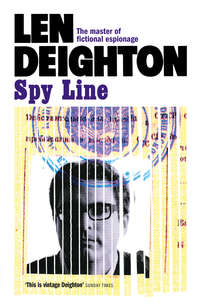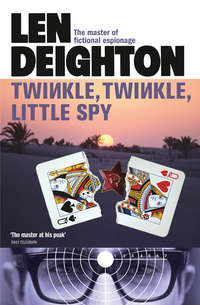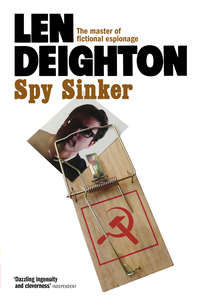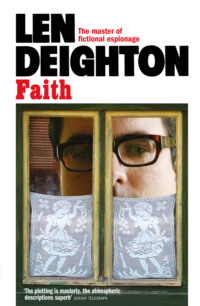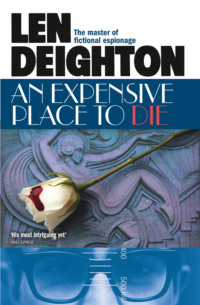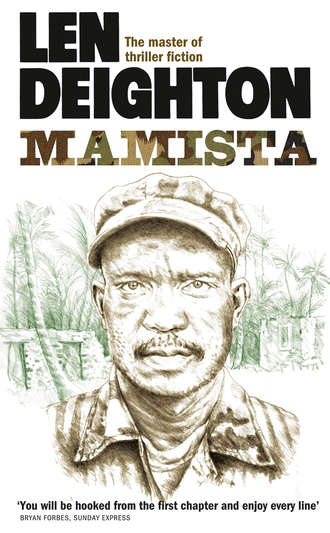
Полная версия
MAMista
‘What about all the money they are getting from growing drugs?’ said the man from Birmingham.
‘I saw the same TV programme,’ said the lawyer. ‘Are you sure that was Spanish Guiana? I thought that was Peru.’
‘You can’t believe all that BBC propaganda,’ said the investments man. ‘That TV programme was a repeat. If my memory serves me, it was originally shown back in the Eighties before the Wall came down.’
The chairman watched them but said nothing.
What a circus! If it was always like this, thought Lucas, it would be worth the journey up to town every month.
‘Gentlemen,’ said the lawyer in a tone he normally reserved for consulting counsel. ‘While I wouldn’t agree with Colonel Lucas that this is entirely a medical question, I believe we are all beginning to see that we need more medical information before we can make a decision. After all’ – he looked at them and smiled archly before reminding them how important they were – ‘we are dealing with a great deal of money.’
Clever the way he can do that, thought Lucas. They were clucking away happily now, like a lot of contented hens.
‘What’s the form then?’ said the man from Birmingham in an effort to move things along.
‘An on-the-spot report,’ said the lawyer. He had the infinite patience that the law’s bounty and unhurried pace provide. He gave no sign that this was the fourth time he’d said it.
‘In any case, we all agreed that the antibiotics should be sent,’ said the investments man, although no one had agreed to it, and someone had specifically advised against that course of action. ‘Let’s send that immediately, shall we?’
The lawyer did not respond to the suggestion, knowing that putting it to the vote would start new arguments. Thankful that the dispute about the anonymous donor now seemed to have faded, he picked up a pile of paper and tapped it on the table to align the edges. He did it to attract their attention: it was a trick he’d learned from his partner. As they looked round he said, ‘Getting someone to Guiana and back shouldn’t delay us more than a week or two. Then, if we decide to go ahead, we can airfreight the urgent supplies.’
‘If we decide to go ahead,’ said the peer. The lawyer smiled and nodded.
The secretary said, ‘I think I might be able to arrange the air freight at cost or even free through one of our benefactors.’
‘Excellent,’ said the research man.
Bloody fool, thought Lucas, but he modified the thought: ‘Much better to buy locally whenever possible. Cash transfer. Ship it from Florida perhaps.’
The lawyer gave an audible exhalation. ‘We must be careful. Graft is second nature in these countries.’
‘Easier to protect money than stop pilfering of drugs and medicines,’ said Lucas. ‘In fact we should look at the idea of flying it right down to the southern provinces where it’s needed.’
‘And of course there will be customs and duty and tariffs,’ said the lawyer. It would be a nightmare and he was determined to dump it into someone else’s lap if he could.
‘That should be arranged in advance,’ said Lucas. ‘World Health Organization people must put the pressure on the central government. It would be absurd to pay duty on medical supplies that are a gift to their own people.’
‘Well, that will be your problem,’ said the lawyer.
Lucas looked at him and eventually nodded.
The chairman picked up the agenda and said, ‘Item four …’
‘Hold on. I don’t understand exactly what we have decided,’ said the investments man.
The lawyer said, ‘Colonel Lucas will fly out to Spanish Guiana to decide what medical aid should be given to people in the southern provinces.’
‘The Marxist guerrillas,’ said the man from Birmingham.
‘The people in the southern provinces,’ repeated the chairman firmly. He didn’t say much but he knew what he wanted the minutes to record.
The lawyer said, ‘The donor has offered to arrange for a guide, interpreter and all expenses.’
They looked at Lucas and it amused him to see in their faces how pleased they were to be rid of him. It was not true to say that Lucas nodded without thinking about it. He had no great desire to visit Spanish Guiana, but the medical implications of a large organized community living isolated deep in the jungle could be far-reaching. There was no telling what he might learn: and Lucas loved to learn. More immediately; he was the medical adviser to the board. They’d expect him to go. It would give him a change of scenery and he had no family responsibilities to consider. And there was the unarguable fact that he could report on the situation better than any man round this table. In fact better than any man they could get hold of at short notice.
Lucas nodded.
‘Bravo, Colonel,’ said the man from Birmingham.
The peer smiled. The jungle was the best place for the little Australian peasant.
‘Item four then,’ said the chairman. ‘This is the grant for the inoculation scheme in Zambia. We now have the estimates for the serum …’
Lucas remembered that he was supposed to meet his daughter next week. Perhaps his sister would meet her instead. He’d drop in on her as soon as this meeting ended. She’d question him about his trip to South America and then claim to have divined it in the stars. Oh well. Perhaps it would have been better if she had got married, but she’d chosen instead to look after his ailing parents. He felt guilty about that. He’d never given any of the family anything to compare with the love and devotion they had given him. Too late now: he’d take his guilt to the grave.
He’d tell her what he knew himself and that wasn’t much. He looked down at the pad in front of him. He’d drawn a jungle of prehensile trees, each leaf an open hand. On second thoughts he’d tell her little or nothing. He’d only be away three weeks, a month at the most.
Serena Lucas, his unmarried sister, lived in a smart little house in Marylebone. Ralph could never enter it without feeling self-conscious. The polished brass plate on the railings was as discreet as any lawyer’s shingle. Only the symbol beneath her name told the initiated that here lived a clairvoyant.
A disembodied voice came in response to the bellpush. ‘It’s Ralph,’ he said into the microphone. A buzzer sounded and he opened the door.
The short narrow hall immediately gave on to a staircase. These houses were damned small: he would not like to live in one. But it was immaculately kept. The carpeting and the furnishings were good quality and carefully chosen. On the wall he saw a new lithograph: a seascape by a fashionable artist. He guessed it had been payment for some shrewd piece of advice. She encouraged her clients to give her such gifts and usually got generously overpaid. The old witch was clever, there was no doubt about that, whatever one thought about the supernatural.
‘That’s a fine print,’ said Ralph as his sister came out of her study to greet him.
They kissed as they always did. She offered each cheek in turn and he avoided disturbing her make-up. Madame Serena was an attractive woman four years younger than Ralph. She was slim and dark with a pale complexion and wonderful luminous eyes that were both penetrating and sympathetic. Perhaps such colouring fulfilled her clients’ expectations of Bohemian blood, but the tailored suit, gold earrings and expensive shoes were another dimension of her personality. The fringed handbag with its beadwork was the only hint of the Gypsy.
‘What a lovely surprise to see you, Ralph.’ She pronounced it ‘Rafe’ as one of her well-bred clients had once done. Her voice had no trace of the Queensland twang.
‘I was passing. I hope you’re not too busy.’
‘The day before yesterday I had a senior Cabinet minister here,’ she said. She had to tell him the moment he got inside the door. She was still the little sister wanting his approval and admiration.
‘Not the Home Secretary trying to find a way out of that hospital scandal?’
She didn’t acknowledge his joke. ‘Ralph. You know I never gossip about clients.’ And yet in her manner she was able to imply that she had been consulted on some vital matter of government policy.
‘I’m sent to South America, Serena. Just a week or so. I wonder if you would meet Jennifer next Wednesday afternoon? If not, I will see if I can contact her and change the arrangements.’
She did not reply immediately. She led him into the drawing-room and they both sat down. ‘Would you like tea, Ralph?’
‘Have you caught this appalling English habit of drinking tea all day?’
‘Clients expect it.’
‘And you read the tea-leaves.’
‘You know perfectly well that I do not. Tea relaxes them. The English become far more human when they have a hot cup of tea in their hand.’
‘Do they? I shall bear that in mind,’ said Ralph. ‘You’ll meet Jennifer then?’
His sister and daughter did not enjoy a warm relationship but he knew Serena would not refuse. They had grown up in a warm congenial family atmosphere where they did things for one another. She took a tiny notebook from her handbag and turned it to the appropriate page. ‘I have nothing I cannot rearrange. What time is the plane arriving?’
‘London–Heathrow at five.’
‘Wednesday is not an auspicious day for travelling, Ralph,’ she said.
‘Perhaps not, but we can’t consult you every time anyone wants to go somewhere.’
She sighed.
Ralph said, ‘I wish Jennifer had chosen a college somewhere in the south.’
‘You fuss over her too much, Ralph. She is nineteen. Some women have a family and a job too at that age.’ Serena took a small antique silver case from her handbag and produced a cigarette. She lit it with a series of rapid movements and breathed out the smoke with a sigh of exasperation. ‘You should think of yourself more. You are still young. You should meet people and think about getting married again. Instead you bury yourself in that wretched house in the country and finance every whim your daughter thinks up.’ She extended a hand above her head and flapped it in a curious gesture. Ralph decided that it was an attempt to wave away the smoke.
‘That’s not true, Serena. She never asks for extra money. If I bury myself in the country it’s because I’m in the workshop finishing the portable high-voltage electrophoresis machine. It could save a lot of lives eventually.’ He smiled. ‘And I thought you liked my house.’
‘I do, Ralph.’ He’d discovered the ramshackle clapboard cottage on the Suffolk coast, and purchased it against the advice of everyone, from his sister to his bank manager. It was now a welcoming and attractive home. Ralph had done most of the building work with his own hands.
Sitting here with his sister – so far from the home in which they’d grown up – Ralph Lucas wondered at the way both of them had changed. They had both become English. His sister had embraced the English ways enthusiastically, but for Ralph Lucas change had come slowly. Yet even his resistance and objections to English things had been in the manner that the English themselves rebelled. Nowadays he found himself saying ‘old boy’ and ‘old chap’ and wearing the clothes and doing all kinds of things done by the sort of upper-class English twit he’d once despised. England did this to its admirers and to its enemies.
‘South America,’ said Ralph to break the silence.
‘I knew you’d be crossing the water, Ralph,’ she said.
‘Do you make it three weeks or a month?’ he asked with raised eyebrow.
‘Oh, I know you’ve never believed in me.’
‘Now that’s not true, Serena. I admit you’ve surprised me more than once.’
Encouraged she added, ‘And you will meet someone …’
‘A certain someone? Miss Right?’ He chuckled. She never gave up on arranging a wife for him: a semi-retired tennis champion from California, an Australian stockbroker and a widow with a flashy country club that needed a manager. Her ideas never worked out.
She leaned forward and took his hand. She’d never done anything like that before. For a moment he thought she was going to read his palm but she just held his hand as a lover – or a loving sister – might. He recognized this as a sign of one of her premonitions.
‘Chin up! I’m only teasing, old girl. Don’t be upset. I didn’t mean anything by it.’
‘You must take care of yourself, Ralph. You are all I have.’
He didn’t quite know how to respond to her in this kind of mood. ‘Now! Now! Remember when I came back from Vietnam? Remember admitting the countless times you had seen a vision of me lying dead in the jungle, a gun in my hand and a comrade at my side?’
She nodded but continued to stare down at their clasped hands for a long time, as if imprinting something on to her memory. Then she looked up and smiled at him. It was better to say no more.
4
TEPILO, SPANISH GUIANA. ‘A Yankee newspaper.’
Ralph Lucas did not much like flying and he detested airlines and everything connected with them. He dreaded the plastic smiles and reheated food, their ghastly blurred movies, their condescending manner and second-rate service. He had not enjoyed his ‘first-class’ transatlantic flight from London to Caracas via New York. Waiting at Caracas, he was not pleased to hear that the connecting flight to Tepilo was going to be even more uncomfortable. After a long delay he flew onwards in a ten-seater Fokker which had República Internacional painted shakily on the side. He shared the passenger compartment with six old men in deep mourning and six huge wreaths.
The flight was long and tedious. He looked down at the fever-racked coastal plain and the shark-infested ocean and remembered the joke about President de Gaulle choosing France’s missile launching site in nearby French Guiana. It was not sited there because at the Equator the spinning earth would provide extra thrust, but because ‘If you are a missile there, you’d go anywhere.’
Neither the runway nor the electronics at Tepilo airport were suited to big jets. A Boeing 707 with a bold pilot could get in on a clear day; and out provided it was judiciously loaded for take-off. Such an aviator had brought in an ancient Portuguese 707 that Lucas saw unloading cases of champagne and brandy into the bonded warehouse as he landed. There were other planes there: some privately owned Moranes, Cessnas and a beautifully painted Learjet Longhorn 55 that was owned by the American ambassador. There was a hut with ‘Aereo-Club’ on its tin roof so that visiting pilots would see it. Now alas, windows broken, it was strangled under weeds.
The main airport building – like the sole remaining steel-framed hangar – provided nostalgic recognition to passengers who had encountered the US Army Air Forces in World War Two. Little changed, these were the temporary buildings that the Americans had erected here, alongside this same runway, and the subterranean fuel store. Tepilo (or Clarence Johnson field as it was then named) was built as an emergency landing field for bombers being ferried to Europe by the southern route.
Upon emerging from immigration, Lucas looked round. The mourners with whom he’d travelled were being greeted by a dozen equally doleful men clutching orchids. All of them were dressed in three-piece black suits and shiny boots. Stoically enduring the stifling heat was an aspect of their tribute. All the airport benches – and the floor around them – were occupied by families of Indians in carefully laundered shirts and pants, and colourful cotton dresses. Their wide-eyed faces, and their hands, revealed that they were agricultural workers on a rare visit to the big city. Most of them were guarding their shopping: some pairs of shoes, a tyre, a doll and, for one excited little boy, a battery-powered toy bulldozer.
‘Mr Lucas?’
‘Yes, that’s me.’
She smiled at his obvious discomposure. ‘My name is Inez Cassidy. I am directed to take care of you.’
Lucas couldn’t conceal his surprise. It wasn’t just that the MAMista contact proved to be female that disconcerted him, it was that she was not at all the type he expected. She was slim and dark, her complexion set off by the shade of her brown shirt-style dress, whose simplicity belied its price. She wore pearls at her throat, a gold wristwatch and Paris shoes. Her make-up was slight and subtle. Anywhere in the world she would have attracted looks of admiration; here in this squalid backwater she was nothing short of radiant.
Her face was not only calm but impassive, held so to counter the insolent stares and whispered provocations that women endure in public places in Latin America. She touched her hair. That it was a nervous mannerism did not escape Lucas, and he saw in her eyes a fleeting glimpse of the vulnerability that she took such pains to conceal.
‘Will I fly south directly?’ Lucas asked, hoping that the answer would be no. He too was something of a surprise, wearing an old Madras cotton jacket, its pattern faded to pastel shades, and lightweight trousers that had become very wrinkled from his journey. He had a brimmed hat made from striped cotton; the sort of hat that could be rolled up and stuffed into a pocket. His shoes were expensive thin-soled leather moccasins. She wondered if he intended wearing this very unsuitable footwear in the south. It suddenly struck her that such a middle-aged visitor from Europe would have to be cosseted if they were to get him home in one piece.
‘May I see your papers?’ She took them from him and passed his baggage tags to a porter who had been standing waiting for them. She also gave him some money and told him to collect the bags and meet them at the door. The porter moved off. Then she read the written instructions and the vague ‘to whom it may concern’ letter of introduction that the Foundation had given him in London. It made no mention of Marxist guerrilla movements. ‘Tomorrow or Thursday,’ she said. ‘Sometimes there are problems.’
‘I understand.’
She smiled sadly to tell him that he did not understand: no foreigner could. She had met such people before. They liked to call themselves liberals because they sympathized with the armed struggle and tossed a few tax-deductible dollars into some charity front. Then they came here to see what was happening to their money. Even the best-intentioned ones could never be trusted. It was not always their fault. They came from another world, one that was comfortable and logical. More importantly they knew they would return to it.
She read the letter again and then passed it back to him. ‘I have a car for you. The driver is not one of our people. Be careful what you say to him. The cab drivers are all police informers, or they do not keep their licences. You have a British passport?’
‘Australian.’ She looked at him. ‘It’s an island in the Pacific.’
‘I have arranged accommodation in town,’ she said. ‘Nothing luxurious.’
‘I’m sure it will be just fine.’ Lucas smiled at her. For the first time she looked at him with something approaching personal interest. He was not tall, only a few inches taller than her, but the build of his chest and shoulders indicated considerable strength. His face was weather-beaten, his eyes bright blue and his expression quizzical.
She reached for his arm and pulled him close to her. If he was surprised at this sudden intimacy he gave no sign of it. ‘Look over my shoulder,’ she said softly.
He immediately understood what was expected of him. ‘A horde of policemen coming through a door marked “Parking”,’ he told her. He could see the porter, waiting at the exit holding his bags. Beyond him, through the open doors, police vans were being parked. Their back doors were open and he could see their bench seats and barred windows.
Head bent close to his she said, ‘Probably a bomb scare. They’ll check the papers of everyone as they leave the ticket hall.’
‘Will you be all right?’
Keeping her head bowed so as not to expose her face she said, ‘There is no danger but it is better that they do not see us together.’
Policemen passed them leading two sniffer dogs. She lifted Lucas’ hand and kissed it. Then, as she turned her body, he put his arm round her waist to keep up the pretence of intimacy. ‘I will be all right,’ she said. ‘I have a Venezuelan passport. Walk me away from the policemen at the enquiry desk: they will recognize me.’
In that affectionate manner that is a part of saying farewell, Lucas walked holding her close, with her head lolling on his shoulder. They went to the news-stand, his arm still holding her resolutely. When they stopped she turned to him and looked into his eyes.
‘You must remember the address. Don’t write it down.’ She glanced across to where two policemen had taken control of the enquiry desk. Then she made sure that the porter was still waiting with Lucas’ bag. She leaned even closer and said, ‘Fifty-eight, Callejón del Mercado. Ask the driver for the President Ramírez statue. He’ll think you are going to the silver market.’
As they stood together, half embracing and with her lips brushing his chin, he felt a demented desire to say ‘I love you’ – it seemed an appropriately heady reaction. There were police at every door now. They had cleared the far side of the concourse. Two policemen with pass keys were systematically opening the baggage lockers one by one. The one and only departure desk had been closed down and a police team, led by a white-shirted civilian, was questioning a line of ticket-holders. Some had been handcuffed and taken out to the vans.
Lucas didn’t say ‘I love you’ but he did crush her close. She let her body go limp and put both arms round him to play the part she’d chosen.
‘The porter is paid already.’
‘I don’t like leaving you.’
‘Don’t pay more than the amount on the meter,’ she advised, gently breaking from the embrace. ‘They are all thieves.’
‘Will I see you again?’
‘Yes, later. And I will be on the plane when you go south,’ she promised.
He held her tight and murmured, ‘I love you.’
They say it’s the proximity of the Equator that does it.
The policeman at the door glanced at him, his ticket and his passport and then nodded him through. The porter opened the door of an old Chevrolet cab and put the bags alongside the driver. ‘Take me to the statue of President Ramírez,’ said Lucas. His Spanish was entirely adequate but the cab driver was more at home in the patois. It took two more attempts before he was understood. Lucas was determined to master the curious mixed tongue. He said, ‘Is the traffic bad?’
‘Are you Italian?’
‘Australian.’
It meant nothing to the driver but he nodded and said, ‘Yes, I recognized your accent.’ He sighed. ‘Yes: police blocks all round the Plaza. Checking papers, looking in the trunk, asking questions. I will avoid the Plaza. Traffic is backed up all the way to the cathedral.’
‘What is happening?’
‘Those MAMista bastards,’ said the driver. ‘They put a bomb in the Ministry of Pensions last night. They say people in the street outside were wounded. I hope they catch the swines.’
‘Your politics here are very complicated,’ said Lucas tentatively.
‘Nothing complicated about tourist figures being down sixty-eight per cent on last year. And last year was terrible! That’s what those mad bastards have done for working men like me. Visitors down by sixty-eight per cent! And that’s the official statistic, so you can double that.’
The taxi was making a long detour. Cabs did not usually bring tourists along this part of the waterfront. Here the militant residents of sprawling slums had declared them to be independent guerrilla townships. Painted warnings and defiant Marxist proclamations marked the ‘frontier’. Beyond that the police armoured carriers closed their hatches and, at night, watched out for home-made petrol bombs.
The Benz government refused to admit that there were any of these spots that foreign reporters called ‘rebel fortresses’. Regularly they proved their point by sending in the army to do a ‘house-to-house’. Soldiers in full battle order brought tanks, water cannon and searchlights. They closed off a selected section and searched it for arms, fugitives and subversive literature. Sometimes the army took reporters along to show them how it was done. The last such demonstration had encountered a rain of nail bombs and Molotov cocktails: two soldiers and a Swedish journalist had been severely burned.


